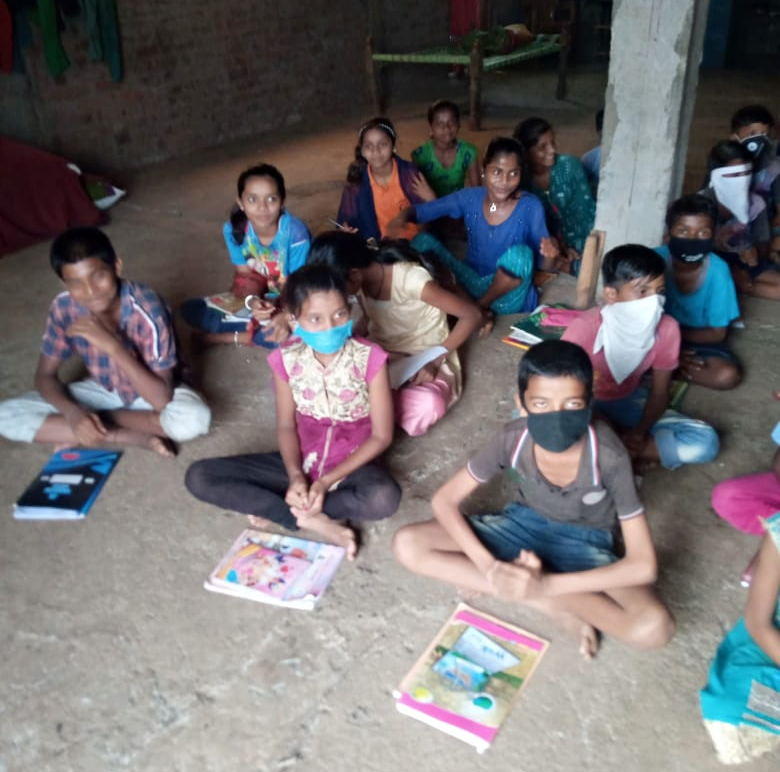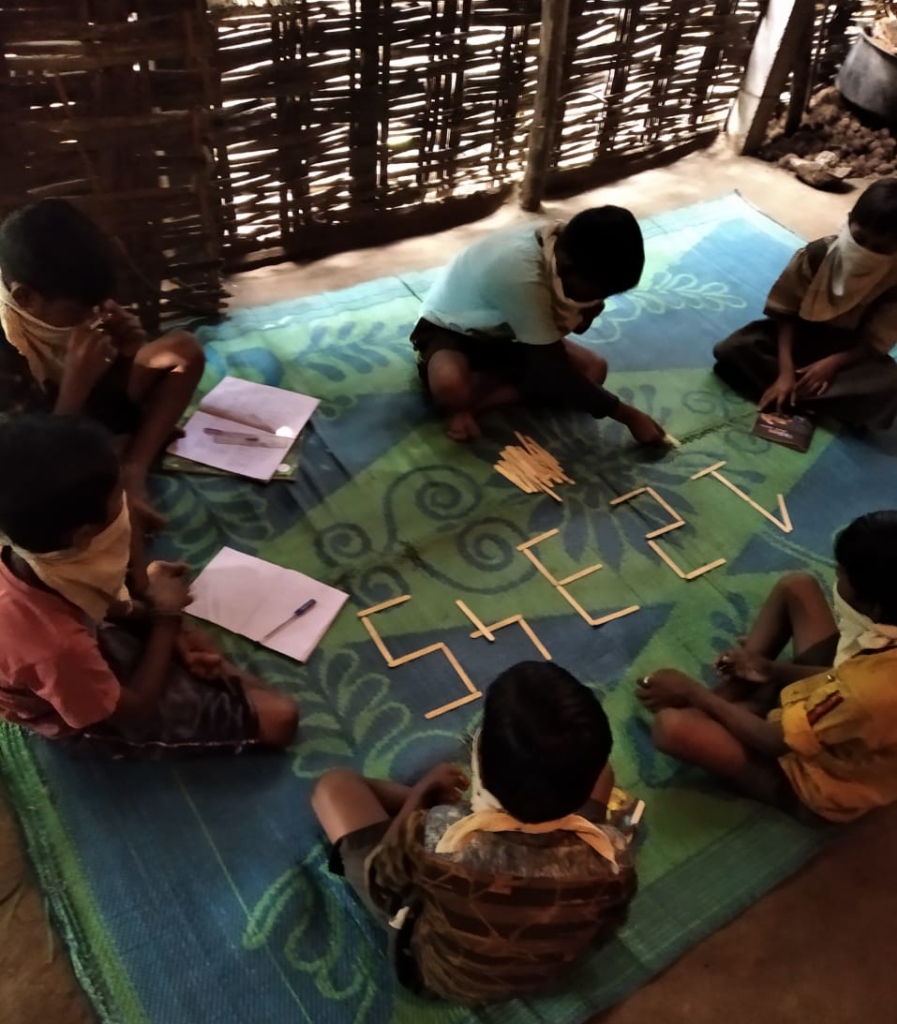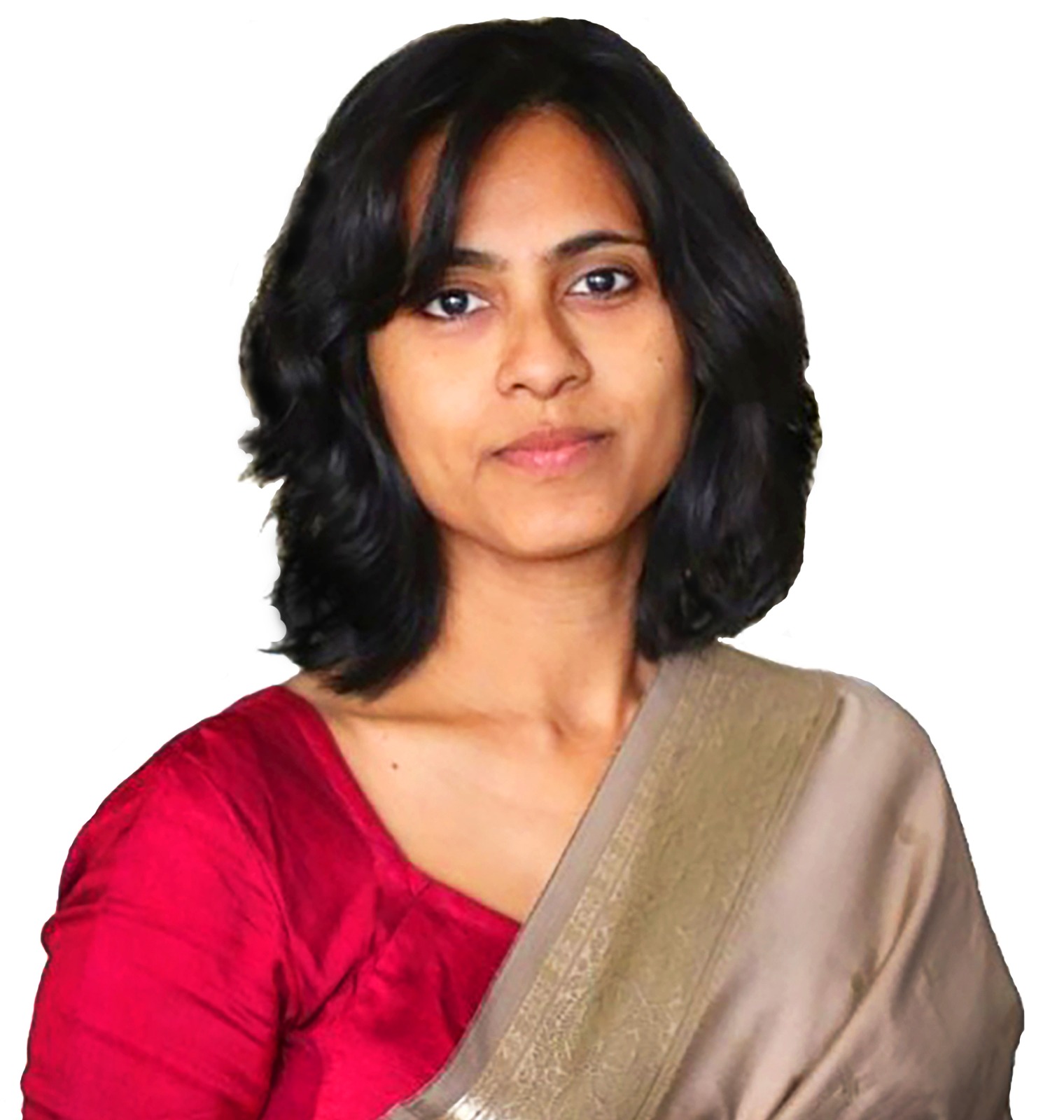
 Ratna
Ratna
October 4, 2020: Governments, educationists and policy makers around the world are at their wits’ end, desperately trying to grapple with the huge education crisis that human society is now facing due to the coronavirus pandemic.
Want to read the story in Hindi? Click HERE / हिंदी में पढ़ें
With school education going digital due to lockdowns, only a small privileged section of society is being able to facilitate schooling for children through online means. A stark majority of kids from the economic ‘global south’ have been completely detached from schooling due to lack of access to online means.
The poorer world has no option but to wait for physical schools to reopen – and that wait could last months and even years.
Please follow us on Facebook & on Twitter for more such incredible stories
In a country like India where the economic gap between privileged and the marginalised is already alarming, this selective access to online schooling is only widening the gap between the haves and the have-nots.
Online classes typically require a desktop, a laptop or at least an internet-enabled mobile phone along with high-speed internet. Cost-wise, it’s impossible for a financially marginalised family, especially ones with several kids, to bear those expenses.
Recently, Unicef published a report that said 72% of school-going kids are unable to access remote learning, so they have fallen off the radar of conventional school education. And it’s unlikely they can ever catch up again having lagged behind big time.

Miracle in Maharashtra
While mainstream experts are scratching their heads trying to find a universal solution to the problem, four schools deep in the Narmada Valley region in the Indian state of Maharashtra have cracked it.
In a world where mainstream society is over dependent on digitally-driven lifestyles, these Narmada Valley schools have done exactly the opposite to ensure continuity of school education – they decentralised and went local.
With lockdowns keeping regular school teachers away from the premises, some of the Narmada Valley folk have built a network of community teachers, roping them in from within the local community, who are now helping the school kids continue their education – without any remuneration.
Also Read: Pandemic turns India into a new hunger hotspot
It was a simple idea from some of the Narmada Valley’s rehabilitated villagers. And it is something so fundamental that impoverished and marginalised communities around the world can easily adapt.
Just build a pool of teachers from the local community, train them up, open local schools and resume education. No need to go online. No need for costly internet-enabled gadgets and smooth internet connectivity. It’s how the human race taught and learnt during the pre-industrialised days!

‘Online schooling? They don’t even have electricity‘
Medha Patkar, who has been leading the Narmada Bachao Andolan for 35 years now and is one of India’s most fearless and non-violent activists, staunchly opposes the concept of online education because of the widening of the “class gap” that it creates.
“We are totally against online education. It is a system that is totally alien to the people who live in rural India, especially those in tribal areas,” Medha told Empire Diaries during a conversation. “It is impossible for them to access the infrastructure of online education. Where people do not even have access to electricity, how can you propagate remote learning? This is an impossible proposition for them. Also, we don’t believe in online education because it is devoid of any human connection. Online education is no solution. It has increased the class gap. Kids from rural India are lagging behind.”
Most of the schools in the Narmada Valley’s tribal areas are run by the Narmada Abhiyan Navnirman Trust. A majority of these schools are in remote areas where they don’t have access to electricity and running water.

It’s not rocket science, just decentralisation
An ages-old proverb says ‘necessity is the mother of all inventions’. That’s exactly why and how the these villagers of the Narmada Valley came up with the easy solution even as the mainstream world continued to struggle with the problem amid pandemic-related curbs.
Medha, along with her associate and activist Latika Rajput and many other dedicated members of the Narmada Abhiyan Navnirman Trust, had come together to find the solution. Their approach was simply to go local in order to shut out the trouble of restrictions on commuting. They decentralised the village education system.
Latika, who coordinates the village committees for schools, recalled, “With schools closed, the kids were roaming around. So youngsters from these villages proposed that they themselves wanted to start taking care of the children’s education. They wanted to make a meaningful contribution.”
The mission got started with the relocated villages of the Narmada Valley in Maharashtra. First they identified children from 1st to 12th standard in a certain village where about 300 kids used to go to different schools, all of which had been shuttered due to the lockdown.
Then they did a survey of the number of youngsters from the valley who can teach the kids. They were identified and split into various categories of community teachers, from primary level to standard 12, based on their education level, degrees etc. Once that was sorted, the ‘community school’ programme started off with Jivannagar Gaon Nirmanshala in Shahada block in Maharashtra’s Nandurbar district.

‘They shouldn’t forget they ever went to school!’
“We didn’t want to immediately get started with long hours like at regular schools. Instead, we wanted them to take their time and ease into it rather than be very strict with the syllabus right away,” said Latika. “We wanted the basic schooling to first get underway so that the children at least don’t forget what they have learnt. During this lengthy lockdown, it is quite possible that the children will forget that they ever went to school!”
With regular school premises not accessible, “samaj mandirs” and community health centres were converted to makeshift premises for this new system of schooling.
Also Read: Kashmir Revisited, one year on
On August 15, 2020, the first community school opened, running for two to three hours. Youngsters from Class 8 to 10 were put in charge of teaching primary-level kids; graduates were given the responsibility to teach at the higher classes; Masters’ degree holders meantime were helping undergraduate and graduate students.

A lesson for the world
Following the success of this concept, three more schools in Maharashtra’s Nandurbar district were started exactly on the same community-driven formula: in Gopalpur Punarvasan, Narmada Nagar and Revanagar.
“Right now, we have 50 to 70 young women and men who are deeply involved in this system, and all of them have passed Class 12. The teachers are aged between 16 and 25 years. We also have coordinators, cleaners and cooks. Until the government announces the reopening of the regular schools, we will continue to teach the kids in this new system,” said Latika.
Also Read: Noam Chomsky: India’s Lockdown Call Genocidal
The people of Narmada Valley have historically stood up against all odds, right from the days of fighting off big dam builders to now revolutionising the schooling system in the middle of a raging pandemic.
It will only be sheer ignorance and perhaps foolishness if leaders, educationists and policy makers around the world don’t learn from this effective system of decentralised education while the Covid-19 pandemic continues to torment society.

Please follow us on Facebook and on Twitter for more such incredible stories

Believe it or not, there was a time in Iran when wearing the headscarf was banned! Read that incredible history in Secret Notes From Iran written by an Indian journalist.









Dear madam, very nice inititives your narmada bachao Andolan …. great task
Here is the story in Hindi, pl share. https://empirediaries.com/2020/10/10/covid-19-narmada-valley-education-crisis-solved/